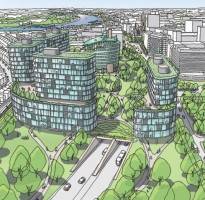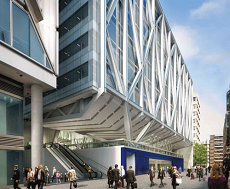April 22, 2015
New generation of mobile users do quarter of work on digital devices 0
 The provision of alternative places to work than the office desk is of particular relevance to a new demographic of worker, dubbed Gen M (because we need yet another one – Ed.), which is described in a new report from US based telecomms consultants MobileIron as either men aged 18-34 or people with children under-18 who rely heavily on mobile technology. On average, Gen M does more than a quarter (26%) of its work on smartphones or tablets, compared to non-Gen M professionals, who do 17 percent. Gen M also uses mobile for “shadow tasking,” doing personal tasks during work hours and work tasks during personal hours, the research from MobileIron reveals. Gen M mobile users are also keen to invest in the latest technology – 42 percent either own or plan to purchase a wearable device, such as the Apple Watch, and of those, 95 percent plan to use those devices for work tasks.
The provision of alternative places to work than the office desk is of particular relevance to a new demographic of worker, dubbed Gen M (because we need yet another one – Ed.), which is described in a new report from US based telecomms consultants MobileIron as either men aged 18-34 or people with children under-18 who rely heavily on mobile technology. On average, Gen M does more than a quarter (26%) of its work on smartphones or tablets, compared to non-Gen M professionals, who do 17 percent. Gen M also uses mobile for “shadow tasking,” doing personal tasks during work hours and work tasks during personal hours, the research from MobileIron reveals. Gen M mobile users are also keen to invest in the latest technology – 42 percent either own or plan to purchase a wearable device, such as the Apple Watch, and of those, 95 percent plan to use those devices for work tasks.























April 8, 2015
Sino might: a review of the CIFF office design show in Guangzhou
by John Sacks • Comment, Furniture, Products, Workplace design
More →